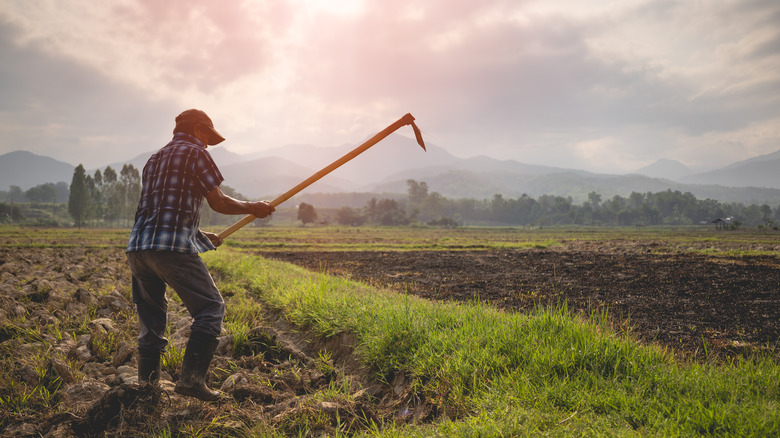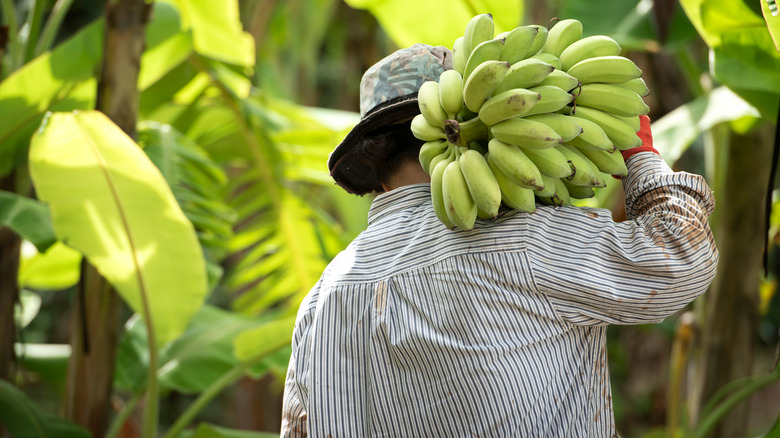Why Sri Lankan Farmers Are Running Out Of Food
For the first time in modern history, Sri Lanka is experiencing a food crisis, former governor of the southern province Rajith Keerthi Tennakoon told The Guardian. Thanks to its tropical climate, the country is normally home to an abundance of banana plantations, rice paddies, and a lucrative farming industry. For many years, Sri Lankan farmers have thrived on the fruits of their labor, but things have recently taken a turn for the worse.
Back in April 2021, President Gotabaya Rajapaksa placed a sudden ban on chemical fertilizers, pushing for a country-wide shift to organic farming. Implemented without any forewarning to farmers unfamiliar with organic farming practices, the poorly timed ban has now resulted in a reported 50% to 60% drop in harvests, as reported by The Guardian.
This has left farmers with little to no profits, forcing them to choose between selling their food or saving it for their own families. "Before the ban, this was one of the biggest markets in the country, with tons and tons of rice and vegetables," local farmer Vimukthi De Silva shared with The Guardian. "But after the ban, it became almost zero."
The Sri Lankan government is scrambling to recover
As a result of President Gotabaya Rajapaksa's chemical fertilizer ban, Sri Lanka has taken a serious economic hit. As India Today reports, the country's economy relies heavily on exporting grain, but since there's an extreme shortage, food prices have skyrocketed. Attempting to mitigate the situation while still upholding the President's goal of making Sri Lanka 100% organic, parliament member Roshan Ranasinghe has proposed a 50/50 compromise — to provide farmers half organic and half chemical fertilizer.
According to Modern Farmer, the government has also pledged to pay farmers a total of $200 million for crop failures, and an additional $149 million in price subsidies for rice farmers. Many of these farmers, however, believe the government's attempts to salvage the industry are too little, too late. Not only have Sri Lankan farmers racked up an insurmountable amount of debt since April 2021, Sri Lanka has already resorted to importing rice as it struggles to be self-sustainable.

